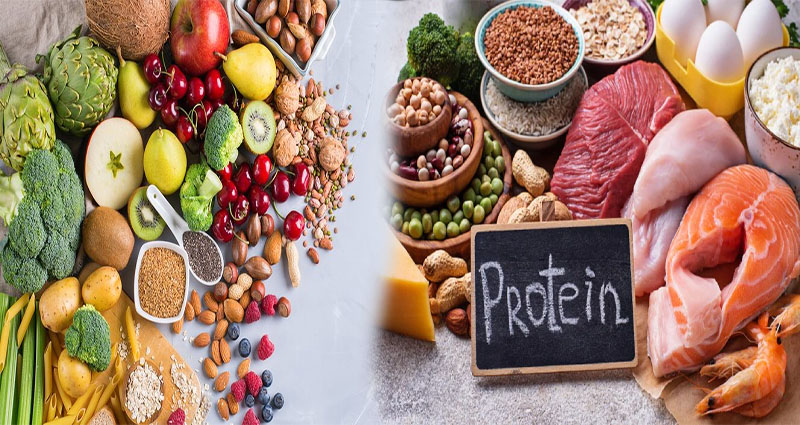If you’re new to bodybuilding, it can be confusing to determine what you should eat. While some of the more popular bodybuilding diets contain high amounts of protein, you should also include some slow-digesting carbohydrates, fiber, and micronutrients to help you build muscle. In addition, you should choose a meal plan that is easy to follow and includes a variety of healthy foods.
Protein
A bodybuilding diet for beginners can help beginners build muscle, lose fat, and get in shape. These plans help you count calories, fat, carbs, and protein. They also encourage you to eat six meals a day and increase your metabolism. If you don’t have the time to prepare and cook meals, you can use protein shakes or eat protein- rich foods.
Protein is an important part of any bodybuilding diet, so it’s imperative to choose the right sources. Lean meats and fish are both great sources of protein, and they contain few saturated and trans fats. Fish, on the other hand, is a good source of essential fatty acids, which support the muscle building process.
Slow-digesting carbs
A slow-digesting carbohydrate diet is the best choice for bodybuilders. Complex carbohydrates are more slowly absorbed and provide more energy. While simple carbs are broken down into glucose in the blood and stored as fat, complex carbs are not immediately broken down into glucose and stored as fat. They also contribute to the full-looking muscles.
A bulk of carbohydrates in your bodybuilding diet should come from high-fiber, minimally processed foods. Examples include oatmeal, brown rice, potatoes, pasta, pita, ezekial bread, and fruits. These foods should be consumed as part of a complete meal.
Micronutrients
When it comes to bodybuilding, micronutrients play a critical role in muscle growth and repair. These vitamins and minerals act as catalysts in the body’s metabolic processes and provide energy for exercise. They are also the raw materials for muscle repair and growth. Insufficient levels of micronutrients may cause deficiencies and cause health problems.
The macronutrient ratios in bodybuilding diets vary depending on the level of physical activity and training. Some diets are high in protein and fat, while others are more balanced. The main goal of the diet is to build muscle while minimizing fat storage. In the bulking phase, bodybuilders should consume a high-protein, high- carbohydrate diet.
Meal plan
A meal plan for beginner bodybuilders should include lunch and dinner recipes that contain an even mixture of protein, starchy carbohydrates, and vegetables. It is also helpful to include a double meal, which can be eaten the next day. If you’re a vegetarian or vegan, meat substitutes are an excellent choice. You can also include protein shakes, which are a good option to use as a meal replacement or post- workout meal.
A beginner bodybuilding diet should also include breakfast, which is considered the most important meal of the day. This meal should be eaten first thing in the morning, and it should not only cure hunger, but also set you up for the rest of the day. It is best to begin your day with a protein-rich meal, such as eggs and oats.
Other great breakfasts include an omelet with vegetables, or a boiled egg on toast. Another good option is a lean bacon sandwich.
Breakfast
Breakfast is the most important meal of the day, and it should be packed with nutrients. Most breakfasts contain one or two eggs, which contain essential vitamins and proteins. Moreover, they are fast to prepare and taste great. Eggs can be made into several variations, but scrambled eggs are the easiest to prepare. You can simply cook one egg in a skillet with a spatula and add some vegetables.
Depending on the goal of your training and your preferred muscle growth, you may need to consume extra calories after your workout. A bodybuilding diet for beginners should be structured so that you can eat the right amount of food. The first thing to do is to calculate the number of calories you need. Then, determine what macronutrients you need. Then, choose an appropriate amount of protein, fat, and carbohydrates for your daily calorie needs.










